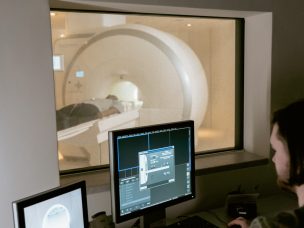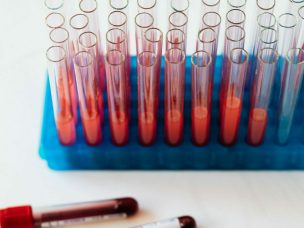Prostate Cancer
Glycolytic Genes Linked to Prostate Cancer Progression and Survival
Aberrant expression of various glycolytic enzyme genes is significantly associated with prostate cancer progression and survival outcomes, according to a recent systematic analysis. Prostate cancer (PCa) is the second-leading cause of cancer death in men. Recent studies showed that alterations in metabolic pathways are involved in PCa development and progression. A study in the American...
Three-Dimensional Laparoscopic Radical Prostatectomy by Transperitoneal Versus Extraperitoneal Approach
Transperitoneal and extraperitoneal approaches to three-dimensional laparoscopic radical prostatectomy have similar clinical outcomes, according to a recent retrospective study. Radical prostatectomy is among the best treatments for localized prostate cancer. Three-dimensional laparoscopic radical prostatectomy (3D LRP) has two main surgical approaches, namely 3D extraperitoneal LRP (3D ELRP) and 3D transperitoneal LRP (3D TLRP). There is...
Fatty Acid-Binding Protein 5 Inhibition Against PTEN-Deficient Prostate Cancer
The fatty acid-binding protein 5 inhibitor SBFI-103 can potentially eliminate drug-resistant prostate cancer cells at a well-tolerated dose. Prostate cancer (PCa) treatment faces challenges due to the lack of effective targets, as initial success with androgen receptor blockade gives way to drug resistance and lethal relapse of the disease. Research has shown that lethal recurrent...
Affordable Care Act and Prostate Cancer Treatment Delays
Broader systemic issues may still affect healthcare accessibility for certain populations. Despite the implementation of the Affordable Care Act, disparities remain in the time taken to initiate prostate cancer treatment. The Affordable Care Act aimed to reduce healthcare disparities. Prostate cancer treatment delays increased despite the Affordable Care Act. Non-White and Medicaid-insured men face higher...
MRI-Measured PPAT Volume: A Key Prognostic Indicator for Prostate Cancer
New research examines the prognostic value of periprostatic adipose tissue volume measured by MRI in patients undergoing laparoscopic radical prostatectomy for prostate cancer. These MRI determinations have become invaluable for providing deeper insights into potential treatment outcomes and the progression of the cancer. MRI-measured periprostatic adipose tissue volume showed a strong correlation with prostate cancer...
Precision Medicine Disparities in Prostate Cancer Treatment
Prostate cancer precision medicine offers great potential, providing tailored approaches that maximize patient benefits. However, disparities remain, particularly among Black men, who may face unequal access and outcomes. Black men with metastatic castration-resistant prostate cancer show higher frequencies of certain genetic markers than White men. Despite these actionable molecular markers, Black men are less likely...
Association Between Race and Patient Trust in Online Prostate Cancer Content
A recent study found that patient trust in prostate cancer online videos was higher when information was delivered by a physician and was associated with racial concordance in Black adults. Black men have a significantly higher risk of prostate cancer than White men. Despite that, Black adults are significantly underrepresented in prostate cancer online content...
Serum Lipid-Based Nomogram for Predicting Prostate Cancer Risk
A retrospective study found that a serum lipid-based nomogram was a reliable tool for predicting the risk of prostate cancer. Various clinical prediction models have been developed in some Western countries for individually assessing prostate cancer (PCa) risk to reduce unnecessary biopsies. These models are more accurate and scientific than the traditional methods based on...
Modified Citrus Pectin Treatment in Relapsed Prostate Cancer
Modified citrus pectin treatment showed durable efficacy and a good safety profile in treating non-metastatic biochemically relapsed prostate cancer in a phase 2 clinical trial. Among patients treated for localized prostate cancer, 20–50% experience a biochemical relapse (BRPC-M0) within 10 years of treatment, with an optimal therapy remaining elusive. PectaSol-Modified Citrus Pectin (P-MCP), a commercially...
More Medical News














